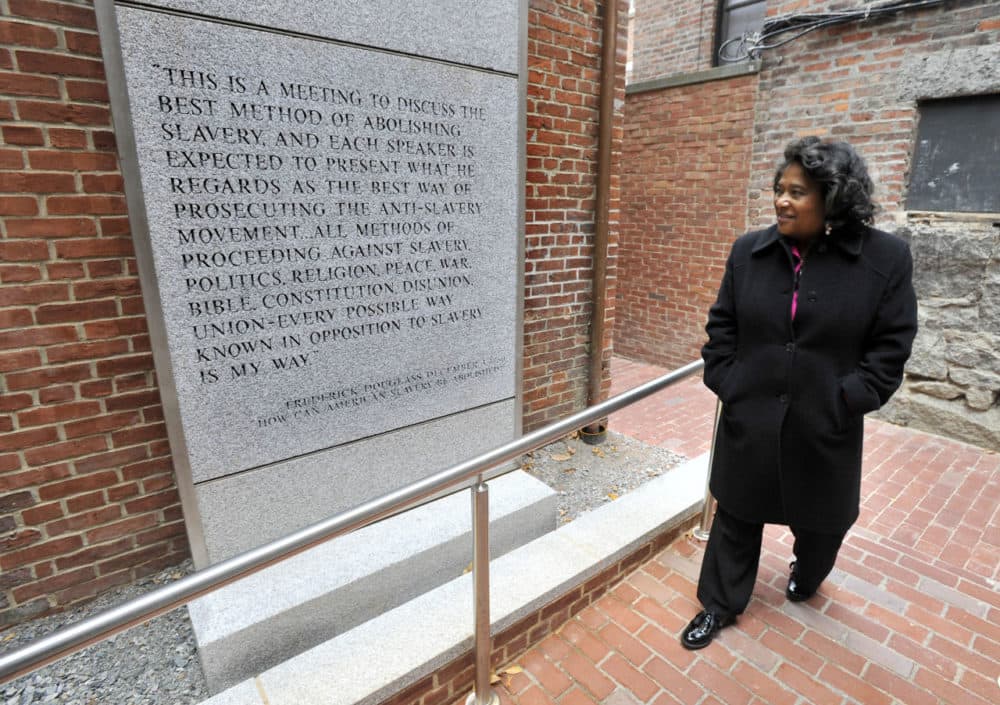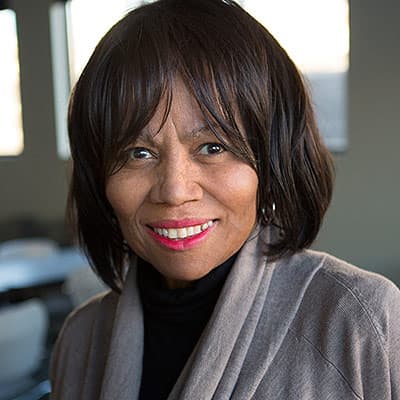Advertisement
Retelling An Ugly Part Of America's History Is This Woman's Mission
Resume
Retelling an ugly part of Boston’s history has been Beverly Morgan-Welch’s mission.
The Museum of African American History is honoring her this weekend before she leaves the city. Morgan-Welch spent 16 years as the director of the museum.
Morgan-Welch will be honored as a Living Legend for her work in leading the effort to restore the African Meeting House on Beacon Hill and the story of the people who made it possible.
"It's a terrible story, it's a very difficult story," said Morgan-Welch on the moral dilemma that powered the American economy at the birth of this new nation.
"It's a confusing mess when you decide to do something that is inhumane and immoral," she said.
She's telling the story of slavery in what would become the United States of America.
"If we don't understand the economics of slavery, the economics of this country, then we certainly don't know much, because you have to understand how the country was built. So we have taken an extremely complex story and reduced it to: 'There was once slavery, and it's over. Get over it.' "
'Not Just African American History — It's American'
The Museum of African American History brought the story to life recently at an event at Faneuil Hall — an iconic location named after a slave owner.
"By the 1740s, one of five families in Boston owned slaves," National Park Service Superintendent Michael Creasey explained at the event.
"One of those slaveholders was Peter Faneuil, the gentleman with the print on the wall there," he said.
Creasey and other speakers noted that the slave trade was central to Boston's economy
"Slavery and the slave trade in the Americas existed longer than emancipation and civil rights has yet existed," said state Rep. Byron Rushing, another speaker at Faneuil Hall that day.
"It will not be until 2111 that people of African descent will have been free as long as they have been enslaved in the United States," he said.
The Museum of African American History says its mission is to make sure the history of black Americans is accurately portrayed.
Morgan-Welch says their stories are important for all Americans.
"What I am most proud of is that I want people to understand that this is American history. It's not just African American history -- it's American."
Beverly Morgan-Welch
"What I am most proud of is that I want people to understand that this is American history. It's not just African American history — it's American. We have taught history for many, many years in this country in a way which it just denied the work that most people did, what women did. I feel that among my contributions it has been to ask people to question what they are hearing.
Morgan-Welch's Mission
The work of the museum has been about moving from the myth of slavery to the truth of slavery and its role in the origins of the nations of the Americas and the economic success of the United States.
"Clearly, if black people are in Jamestown in 1619, and black people are in Boston in 1638, Africans, we've been here since the beginning," Morgan-Welch said.
The museum includes the African Meeting House, a three-story brick building tucked in an alley off Joy Street on the northern slope of Beacon Hill. The section of the city is where Boston's free black population came together to build a community and where the Bucks of America formed in the 1770s to help defend the new country.
Built in 1806, the meeting house — the oldest standing African American church building in America — served as a meeting place for the abolitionist movement.
It's where the all black 54th and 55th regiments and the fifth cavalry were recruited to serve in the Civil War.
In the 16 years Morgan-Welch served as director of the museum, the African Meeting House underwent a complete restoration.
"I believe that ultimately the restoration of the African Meeting House to its 1855 appearance is the most important accomplishment of my career while at the museum," she said.
Secondly and equally as important, she says, has been the effort to find multiple ways of sharing this important history with as many people as she could find to listen.
"I learned very quickly that without a sense of place and without images and the words of people of color, black people, people of African descent, it's very hard to change people's perception that African Americans made no contributions and had no agency," Morgan-Welch said. "It's like talking to the wind.
'We Are Becoming The Country We Want To Become'
Morgan-Welch is leaving Boston to continue sharing the story of role of African Americans in building this nation at her new job in Washington.
"We are becoming the country we want to become, we are young yet," she said.
That's part of her message as Morgan- Welch moves to a leadership role at the Smithsonian's new National Museum of African American History, which opens on the National Mall in the nation’s capital in the new year.
This article was originally published on December 04, 2015.
This segment aired on December 4, 2015.
